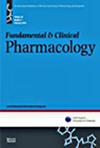Severe fluoropyrimidine toxicity in older adults with cancer with DPYD wild type
Abstract
Background
Despite the implementation of DPYD genotype-guided dosing, approximately 1 in 3 patients receiving fluoropyrimidine-containing chemotherapy continues to experience severe toxicity. While clinical studies have demonstrated a favorable tolerance among highly selected fit older adults, real-world studies have shown an increased risk of toxicity.
Objective
To identify predictors of severe toxicity or treatment deintensification in older DPYD wild-type adults receiving fluoropyrimidine-containing chemotherapy.
Method
Patients wild type for four tested DPYD variants, aged ≥65 years, who participated in a prospective clinical trial investigating genotype-guided individualized fluoropyrimidine dosing, were eligible for the study. The association between tumor-, treatment-, and patient-related characteristics and the occurrence of severe toxicity (grade ≥3, CTCAE v5.0) was analyzed in univariate and multivariate logistic regression analyses. The same analyses were performed for a composite endpoint of severe toxicity or treatment deintensification (including dose reduction, cycle delay, or discontinuation).
Results
A total of 311 patients were included. Median age was 71.2 years and 58.8% were male. Grade ≥3 toxicity occurred in 23.2% of patients. In multivariate analysis, none of the characteristics studied were significantly associated with the occurrence of grade ≥3 toxicity. The composite endpoint occurred in 41.2% of patients and was associated with the use of full dose monotherapy in multivariate analysis.
Conclusion
Despite DPYD genotype-based dosing, grade ≥3 toxicity and treatment deintensification frequently occur in older patients treated with fluoropyrimidine chemotherapy. No patient-related variables were found to be associated with grade ≥3 toxicity, but treatment with dose-reduced monotherapy resulted in fewer treatment deintensification or severe toxicity events.

 求助内容:
求助内容: 应助结果提醒方式:
应助结果提醒方式:


